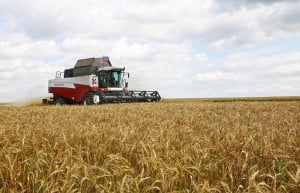Mobilising Against the Corporate Hijack of Agriculture and the UN Food Systems Summit

All Global Research articles can be read in 51 languages by activating the “Translate Website” drop down menu on the top banner of our home page (Desktop version).
Visit and follow us on Instagram at @crg_globalresearch.
***
Despite claims of being a ‘people’s summit’ and a ‘solutions’ summit, the UNFSS is facilitating greater corporate concentration, unsustainable globalised value chains and agribusiness leverage over public institutions. As a result, more than 300 global organisations of small-scale food producers, researchers and indigenous peoples will gather online from 25-28 July to mobilise against the pre-summit.
The Civil Society and Indigenous Peoples’ Mechanism (CSM) for relations with the United Nations Committee on World Food Security is working to eradicate food insecurity and malnutrition. According to the CMS, the UNFSS – founded on a partnership between the UN and the World Economic Forum (WEF) – is disproportionately influenced by corporate actors, lacks transparency and accountability and diverts energy and financial resources away from the real solutions needed to tackle the multiple hunger, climate and health crises.
The CMS argues that the UNFSS is not building on the legacy of past world food summits, which resulted in the creation of innovative, inclusive and participatory global food governance mechanisms anchored in human rights, such as the reformed UN Committee on World Food Security (CFS).
Promoting industrial agriculture
Those who contribute most to world food security, smallholder producers, are the most threatened and affected by the corporate concentration of land, seeds, natural and financial resources and the related privatisation of the commons and public goods.
And these processes are accelerating: the high-tech/data conglomerates, including Amazon, Microsoft, Facebook and Google, have joined traditional agribusiness giants in a quest to impose a one size fits all type of agriculture and food production on the world. Digitalisation, artificial intelligence and other technologies are serving to promote a new wave of resource grabbing and the restructuring of food systems towards a total concentration of power.
The Bill and Melinda Gates Foundation is also heavily involved, whether through buying up huge tracts of farmland, funding and promoting a much-heralded (but failed) ‘green revolution’ for Africa, pushing biosynthetic food and new genetic engineering technologies or more generally facilitating the aims of the mega agrifood corporations.
Under the guise of saving the planet with ‘climate-friendly solutions’, helping farmers and feeding the world, what Gates and his corporate associates are really doing is desperately trying to repackage the dispossessive strategies of imperialism wrapped in the language of ‘sustainability’ and ‘inclusivity’.
Through various aspects of data control pertaining to soil quality, consumer preferences, weather, and land use, for example, and e-commerce monopolies, corporate land ownership, seed biopiracy, patents, synthetic food and the undermining of the public sector’s role in ensuring food security and national food sovereignty, global agricapital seeks to gain full control over the world’s food system.
Smallholder peasant farming is under threat as the big-tech giants and agribusiness impose lab-grown food, genetically engineered (GE) soil microbes, data harvesting tools and drones and other ‘disruptive’ technologies. The model being promoted desires farmerless industrial-scale farms being manned by driverless machines, monitored by drones and doused with chemicals to produce commodity crops from patented GE seeds for industrial ‘biomatter’ to be processed and constituted into something resembling food.
The CMS notes that these are false ‘solutions’ that seek to bypass and undermine the peasant food web which currently produces up to 70% of the world’s food, working with only 25% of the resources. Moreover, these false solutions do not address structural injustices such as land and resource grabbing, corporate abuse of power and economic inequality. They merely reinforce them.
Towards food sovereignty
More than 380 million people belong to the movements protesting against the UNFSS. They are demanding a radical transformation of corporate food regimes towards a just and truly sustainable food system. They are also demanding increased participation in existing democratic food governance models, such as the UN Committee for World Food Security (CFS) and its High-Level Panel of Experts. The UNFSS threatens to undermine CFS, which is the foremost inclusive intergovernmental international policy-making arena.
There is an intensifying fight for space between local markets and global markets. The former are the domain of independent producers and small-scale enterprises, whereas global markets are dominated by increasing monopolistic large-scale international retailers, traders and the rapidly growing influential e-commerce companies.
It is therefore essential to protect and strengthen local markets and indigenous, independent small-scale producers and enterprises to ensure community control over food systems, economic independence and local food sovereignty. With this in mind, the CMS is calling for a radical agroecological transformation of food systems based on food sovereignty, gender justice and economic and social justice.
Agroecology is practised throughout the world. As numerous high-level (UN) reports have argued over the years, this approach improves nutrition, reduces poverty, contributes to gender justice, combats climate change and enriches farmland. With no need to purchase proprietary inputs (chemicals, seeds, etc) and its outperforming of industrial agriculture, agroecology represents a shift towards genuine food sovereignty and thus a direct threat to corporate agribusiness.
During the online mobilisation against the pre-summit, participants will share small-scale food producers and workers’ realities and their visions for a human rights-based and agroecological transformation of food systems. In doing so, they will highlight the importance of food sovereignty, small-scale sustainable agriculture, traditional knowledge, rights to natural resources and the rights of workers, indigenous peoples, women and future generations.
More information about the online mobilisation from 25-28 July can be found on the FoodSystems4People website.
*
Note to readers: Please click the share buttons above or below. Follow us on Instagram, @crg_globalresearch. Forward this article to your email lists. Crosspost on your blog site, internet forums. etc.
Colin Todhunter is an independent writer and analyst specialising in development, food and agriculture based in Europe/India.
He is a Research Associate of the Centre for Research on Globalization.

